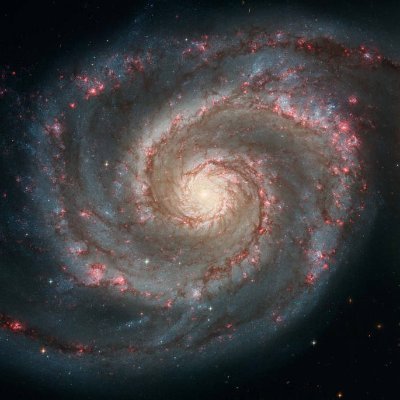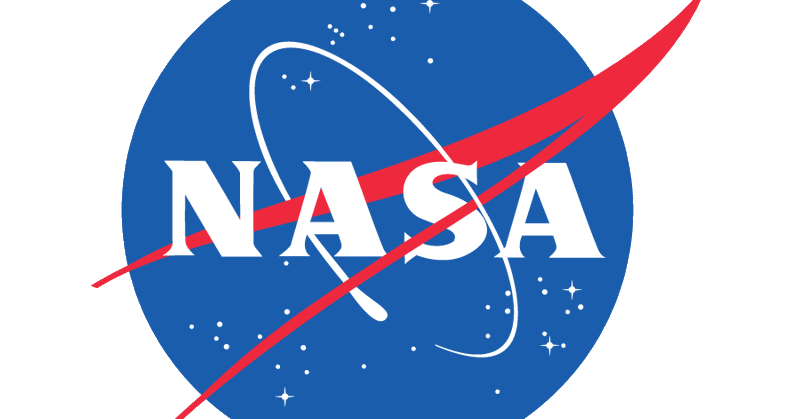
ARCHIVED NASA Exoplanets
@NASAExoplanets
Followers
1M
Following
3K
Media
3K
Statuses
9K
This account has been sunset. Follow us on @NASAUniverse for all future exoplanet updates.
Beyond
Joined December 2008
As of today, this account is officially archived. Follow us on @NASAUniverse for all future exoplanet updates. See you there!
11
35
246
Just a week left until this account is sunset! Join us over at @NASAUniverse for all future updates.
11
37
267
Hey exoplanet people 👋 We’re consolidating our X presence and won’t be posting here anymore. For the latest exoplanet news, follow @NASAUniverse!
25
50
384
For the past six years, our TESS mission has been staring at the sky for long periods, hunting for possible planets outside our solar system. Since TESS catches changes in its view, it can also help us find and study other dynamic sources — here are a few of our favorites! 🧵
#OTD in 2018, @NASA launched the Transiting Exoplanet Survey Satellite to search for new worlds. So far, it’s discovered 432 planets and 7,138 planet candidates! https://t.co/V21GAtWwex Here are some of the wondrous worlds.🧵⬇️
25
64
225
@NASA @NASAWebb Exoplanet 8 Ursae Minoris is somehow orbiting a star that should have destroyed it. TESS studied a star in the latter stages of becoming a red giant – and discovered a planet in a stable orbit! https://t.co/6B2POkz933
5
27
176
@NASA @NASAWebb A super-Earth in the habitable zone! TOI-715 b orbits a small, reddish star that is, by astronomical standards, fairly close – only 137 light-years away. The same system also might harbor a second, Earth-sized planet! https://t.co/Mt7qSi5ffT
2
49
173
@NASA @NASAWebb In 2020, TESS discovered its first Earth-size world in the habitable zone of its star – the distance from a star at which liquid water *could* exist on a planet’s surface. Another Earth-sized exoplanet later joined the lineup. https://t.co/cSCm4pa0wB
1
9
45
@NASA In addition to finding exoplanets on its own, TESS serves as a pathfinder for @NASAWebb. TESS discovered the rocky world LHS 3844 b, and Webb took a closer look to tell us more about it. Our telescopes, much like our scientists, work together. https://t.co/lC8rqe8xAZ
1
9
44
@NASA TESS’ first discovery was a world called Pi Mensae c. It orbits the star Pi Mensae, ~60 light-years away and visible to the unaided eye in the Southern Hemisphere. This discovery kicked off NASA's new era of planet hunting. https://t.co/rW4H8Jl0D7
3
6
51
#OTD in 2018, @NASA launched the Transiting Exoplanet Survey Satellite to search for new worlds. So far, it’s discovered 432 planets and 7,138 planet candidates! https://t.co/V21GAtWwex Here are some of the wondrous worlds.🧵⬇️
20
106
490
April is #CitSciMonth and there are lots of ways to join in. Of course, we're partial to the programs where you can discover worlds, but you do you and @DoNASAScience!
science.nasa.gov
Join NASA researchers and discover the secrets of the universe, search for life elsewhere, and protect and improve life on Earth and in space.
1
100
203
Jump in and learn with the science teams of three NASA projects during the 12-Hour #OneMillionActsOfScience online Palooza, 7-10 pm ET, today! Register: https://t.co/X3cnT9VRrd
#CitSciMonth
0
47
69
Of 5,609 confirmed exoplanets, just 200 are thought to be terrestrial – rocky worlds like Earth and Mars. Fewer still are in their stars' habitable zones. That doesn't mean they're inhabited, of course, but we're looking! https://t.co/OsnvUQBxDQ
7
184
536
In a cosmic ballroom 1,900 light-years away, six stars are dancing in pairs across space. All three pairs are entwined, and all six stars go through eclipses to our view. https://t.co/IXxGdNMVeC
22
293
913
Pretty in purple 💜 Nearly 200,000 light-years from Earth, the Large Magellanic Cloud circles the Milky Way in a long and slow dance around our galaxy. Vast clouds of gas slowly collapse to form new stars. https://t.co/HJXfUODs4H
6
185
637
It's an honor just to be nominated (but...vote for us 😉) NASA is up for 13 #Webbys, including social media and broadcast coverage of two planetary missions - #OSIRISREx and @EuropaClipper! Here's how to vote for your favorite NASA internet moments: https://t.co/slowKcWtVg
13
110
379
A super-Earth in the habitable zone 1,400 light-years away, Earth has a bigger, older cousin. Kepler-452 b orbits a Sun-like star in 385 days and has a temperature similar to Earth's. https://t.co/apGN9irNQB
34
216
933
In a cosmic ballroom 1,900 light-years away, six stars are dancing in pairs across space. All three pairs are entwined, and all six stars go through eclipses to our view. https://t.co/IXxGdNMVeC
22
293
913
A super-Earth in the habitable zone 1,400 light-years away, Earth has a bigger, older cousin. Kepler-452 b orbits a Sun-like star in 385 days and has a temperature similar to Earth's. https://t.co/apGN9irNQB
34
216
933
Pretty in purple 💜 Nearly 200,000 light-years from Earth, the Large Magellanic Cloud circles the Milky Way in a long and slow dance around our galaxy. Vast clouds of gas slowly collapse to form new stars. https://t.co/HJXfUODs4H
6
185
637




